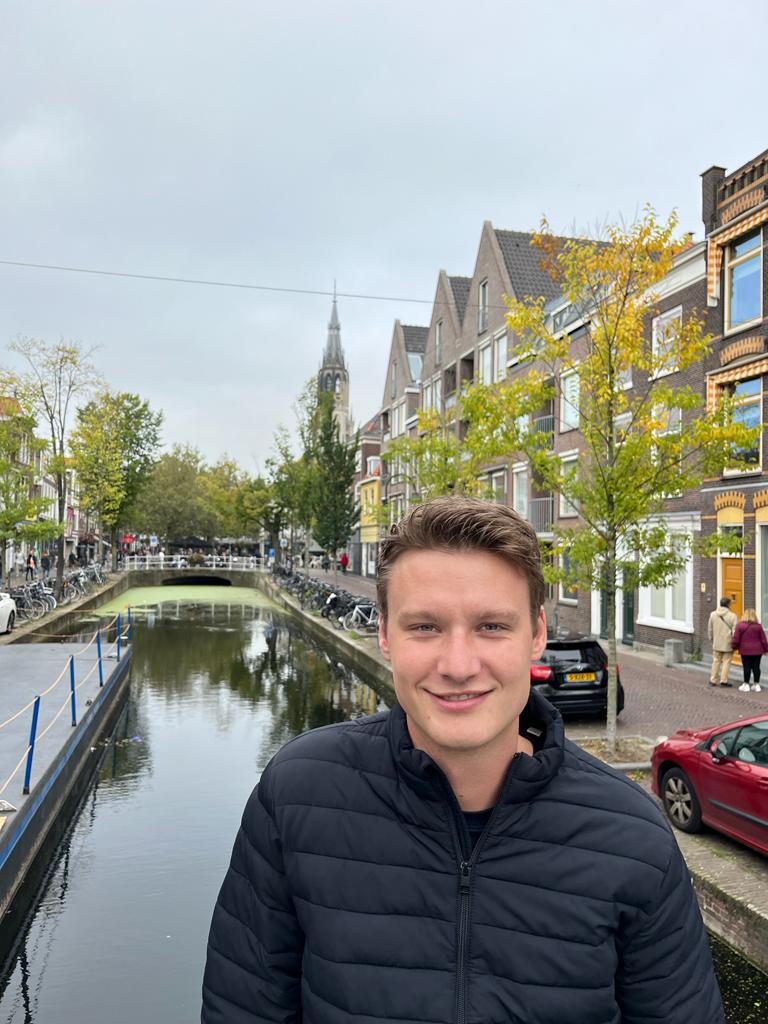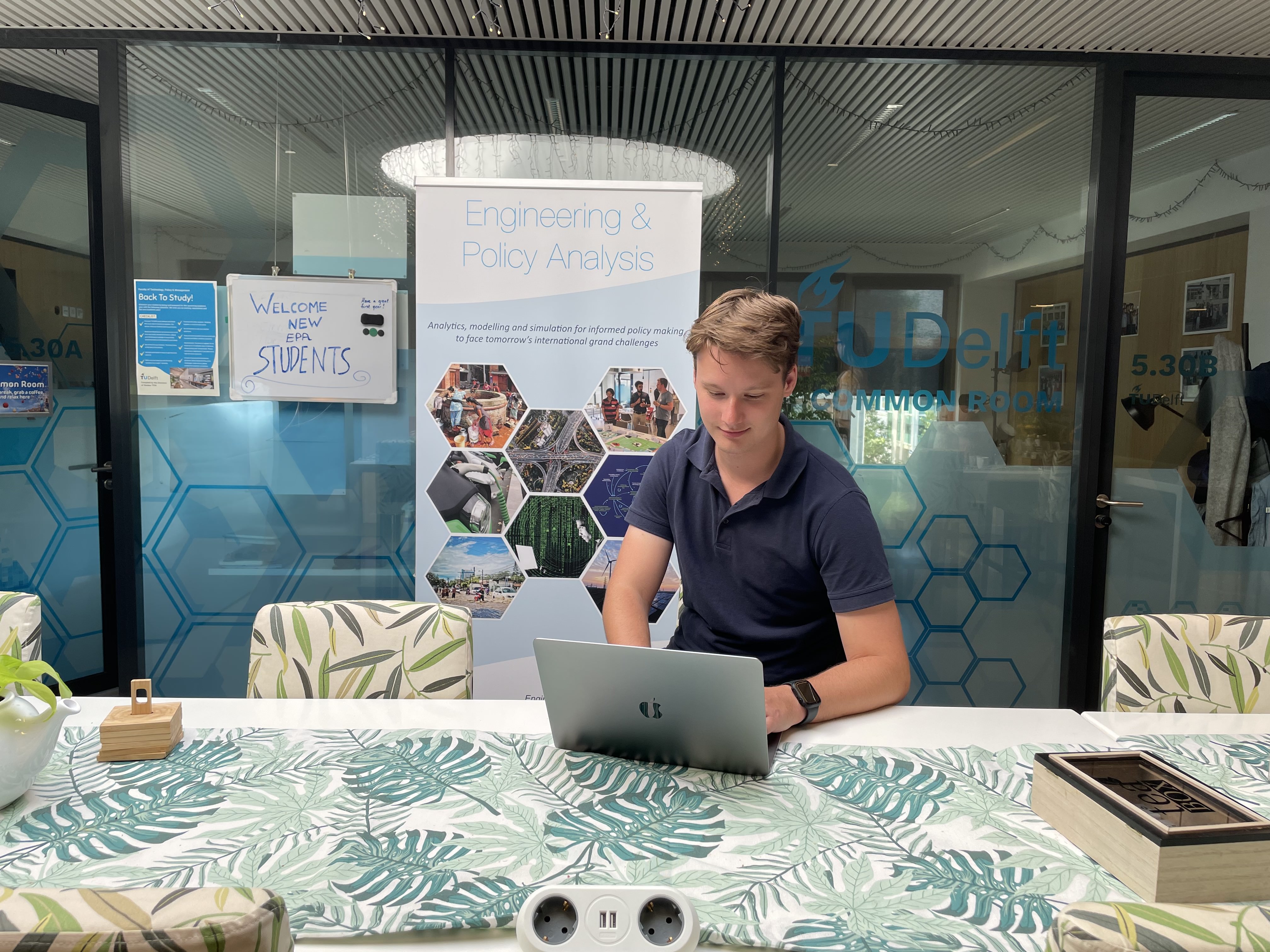Emma from The Netherlands
Personal information
- Name: Milan Moleman
- Age: 22
- Country of origin: The Netherlands
- Current residence: The Hague
- Likes to do: tennis, cycling, and reading. Also likes to perform research on travel behaviour and policy.
Introduction
The MSc in Engineering and Policy Analysis (EPA) stands out because it prepares you well for a wide range of careers. Due to its location in the heart of The Hague, it offers opportunities to connect and collaborate with (semi) governmental bodies and companies at national and international levels.
Background
During the BSc in Systems Engineering, Policy Analysis and Management, I learned a lot about understanding and solving complex problems. These problems are often challenging because they involve many different stakeholders, with different opinions and no agreement on what the real solution is. Each stakeholder perceives the problem in a different manner, which makes identifying the core problem and proposing policy alternatives with consensus among all actors difficult. While I already acquired some modelling and soft skills, such as presenting and debating, to take on these challenges during this bachelor program, there was still a lot to learn. EPA enabled me to do so.
Here, I briefly go into depth on some complex problems I studied with fellow students during the BSc Systems Engineering, Policy Analysis, and Management. These cases provided me with some of the modelling and soft skills to solve grand challenges, which were further exploited during the MSc Engineering and Policy Analysis.
Why EPA?
EPA is well-known for offering students the opportunity to apply modelling and simulation techniques as well as soft skills to real-world cases with various stakeholders involved. By doing so, EPA makes sure that you are well-prepared for the career you want to pursue. From my point of view, this is where EPA distinguished itself from other MSc programmes. By exploring advanced modelling and simulation techniques and using them in real-world cases, we as EPA students gain the knowledge needed to succeed.
EPA is concerned with the analytics, modelling, and simulation for informed policy making to face tomorrow’s international grand challenges. During my first year at TU Delft Campus The Hague, EPA has taught me the analytical view and techniques to excel in solving challenges faced internationally, such as the Bangladesh transportation network, Europe’s migration flows, and the long-term policy strategy of the IJssel River in the Netherlands.
Example
To illustrate, several real-world cases were studied in the first year. In the first quarter, we tackled issues related to large migration flows to the Netherlands for the Dutch Ministry of Interior and Kingdom Relations, and even pitched our solutions directly to them! Another exciting project was aimed at developing a flood risk management strategy for the IJssel River in the Netherlands. Each group of students acted as different stakeholders, using modelling skills to debate and come up with evidence-based policies. During the final debate, representatives came to a consensual view on how the flood risk management strategy should look in order to strengthen the IJssel River for possible short-term and long-term floods. Overall, these two diverse cases highlight and showcase how EPA prepares its students to face today’s and tomorrow’s societal challenges.
Here, you see the higher-level debate as part of the project on the IJssel River. The Province of Gelderland was represented by us, while other groups represented, among others, Rijkswaterstaat, Delta Commission, and the Province of Overijssel. This debate illustrates one of the key features of EPA; applying techniques in order to solve complex problems faced on national and international levels.



